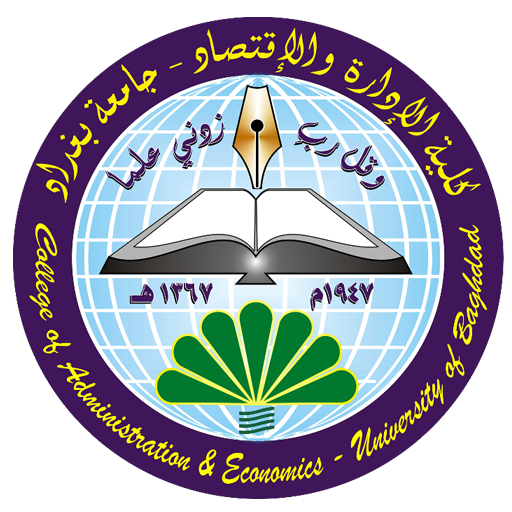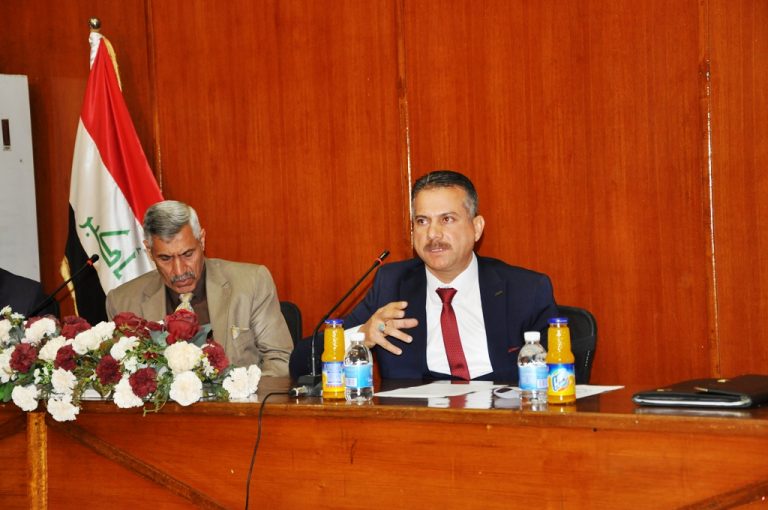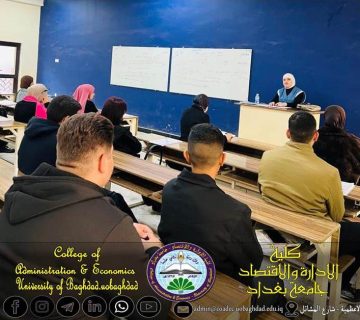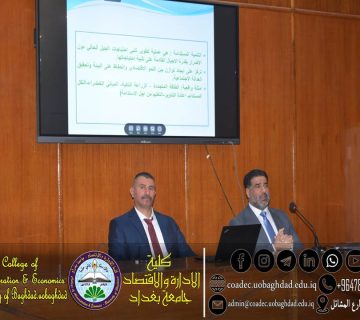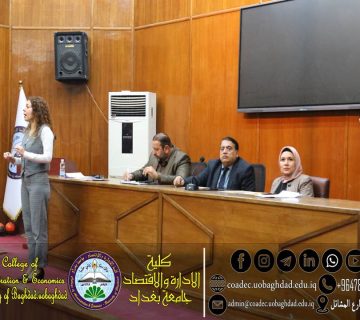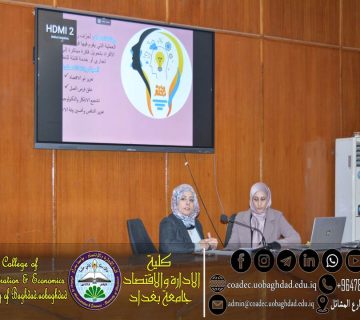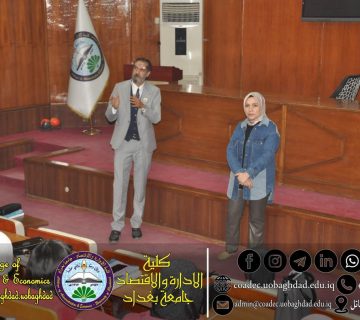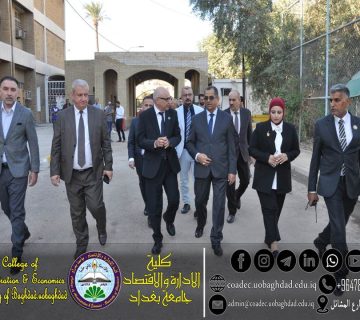The students of the Higher Diploma equivalent to the Master’s in Municipal Administration – Department of Business Administration organized a scientific awareness symposium entitled (The impact of planting Conocarpus trees on the environment), in the presence of Assistant Professor Dr. Ali Mutashar Abdel-Sahib – Dean of Law, representing the President of the University of Baghdad and Professor Dr. Manaf Youssef. Hammoud, Dean of the College and Head of the Department of Business Administration, Dr. Yaroub Adnan Hussein, and a group of professors and students of the Scientific Department.
The symposium, which was moderated by Assistant Professor Fayek Jawad, included the Higher Diploma students presenting their research in this field, each according to their specialty and department. The students warned of the danger of the “Conocarpus” tree, known locally as “Carpus,” because it causes the destruction of infrastructure and the ability of its roots to penetrate pipes and expand inside them quickly. The roots of this tree do not penetrate the pipes unless they are unhealthy or have cracks or openings that enable the roots to penetrate, break or destroy them. However, if the pipes are intact, they are not affected, in addition to consuming large amounts of groundwater and causing the destruction of the floor of the house if it is planted in Houses.
The students stated that there is a plan to stop the cultivation of the “Conocarpus” tree and introduce alternatives to it, such as olive trees, which tolerate hot climates and do not require large amounts of water, or to plant them on the green belt of cities as a soil buffer. The students also touched on its many positive effects, including its evergreen quality and its durability. It is resistant to high temperatures and is resilient to wind and dust, so it can be used as a windbreak. It also does not cause allergies. Its wooden trunks represent a good source of charcoal, and its chemical extracts are considered medicinal and therapeutic materials.
The symposium produced a number of recommendations, the most important of which are:
- Given the damage caused by planting this tree, we must be careful and avoid planting it in cities, in order to avoid problems in the future. Therefore, we recommend that the concerned authorities use it as windbreaks in desert areas, and it can be used a s green belts around cities.
- We also recommend not planting them near sewage networks and potable water networks, and replacing them with evergreen trees such as Acacia of various types, Oleander, Eucalyptus, Sesban, or any trees that add aesthetics and are environmentally friendly.
- We recommend removing trees currently inside cities in the first stage, starting with trees close to infrastructure, and the necessity of conducting scientific and agricultural research by postgraduate students in Iraqi universities and by specialists to reach scientific facts about the harms and advantages of these trees.
- We also recommend the formation of joint committees consisting of municipal institutions, relevant ministries, professors of agricultural colleges, and representatives of environmental departments, whose mission is to prepare appropriate places, study them properly, set a timetable for uprooting these trees from within cities, and prevent plant nurseries from trading and selling these trees.

